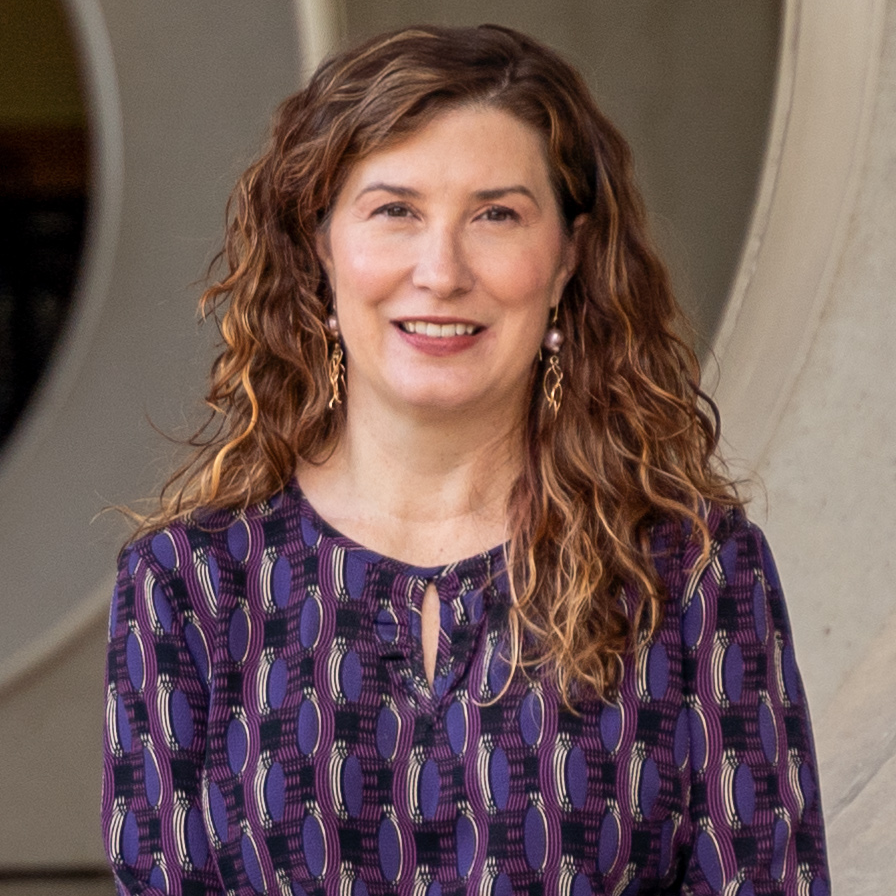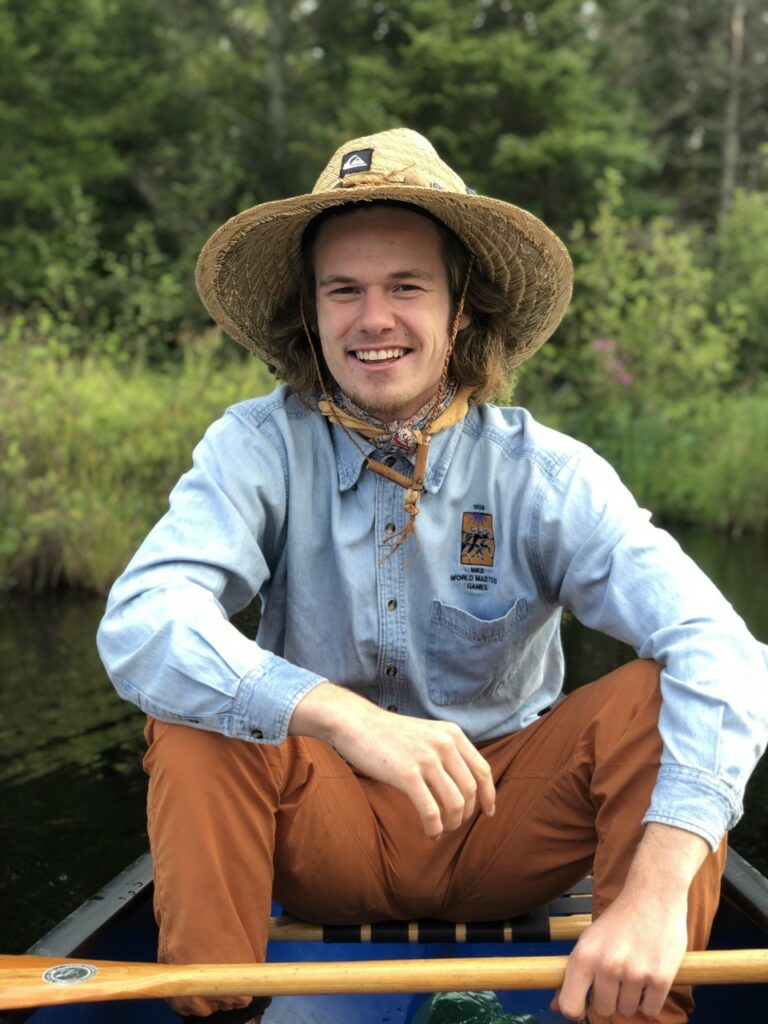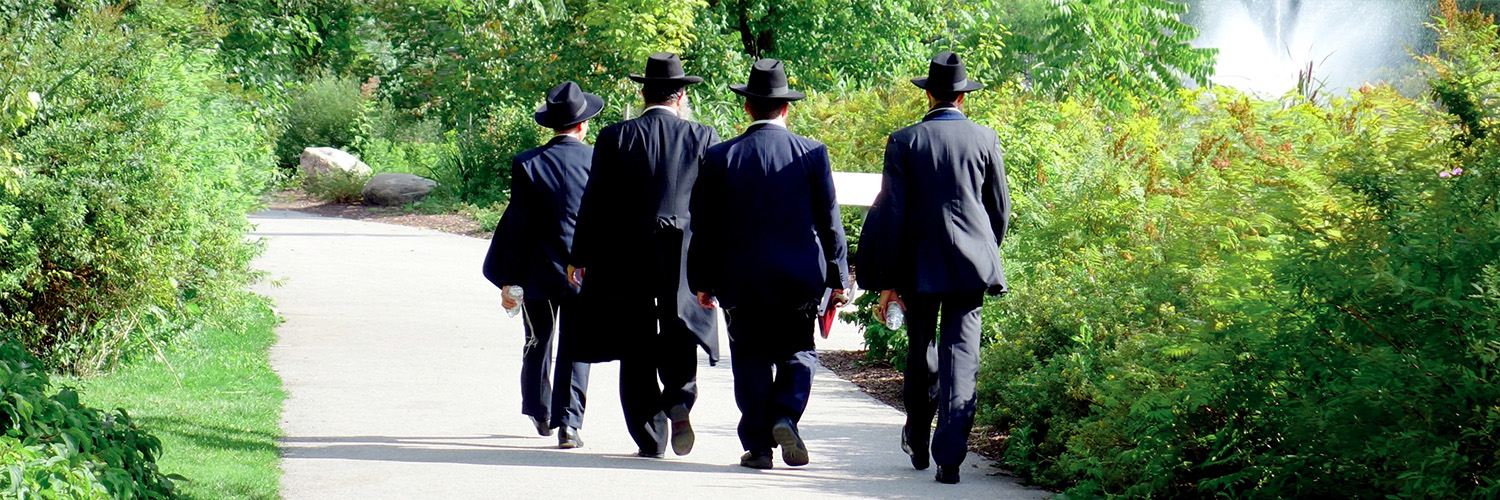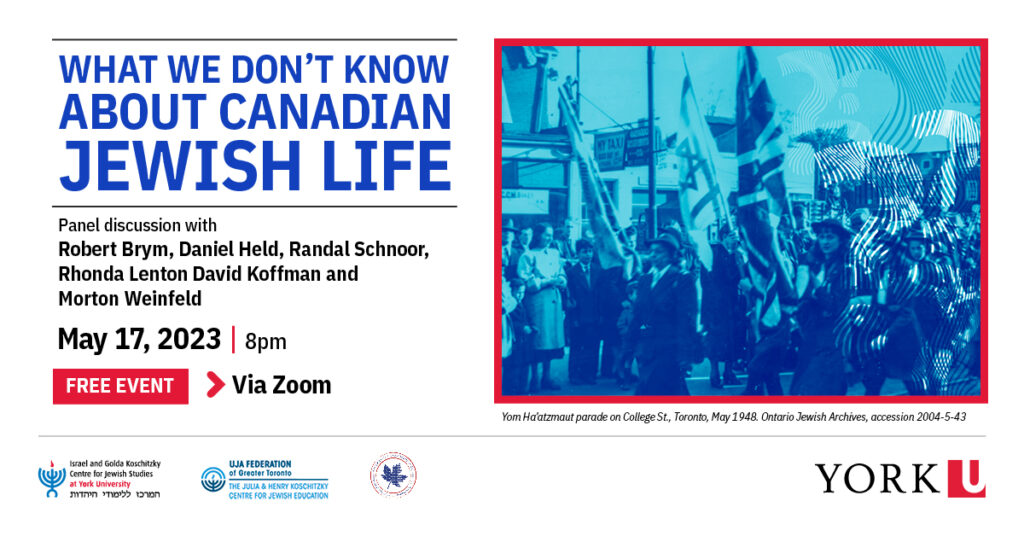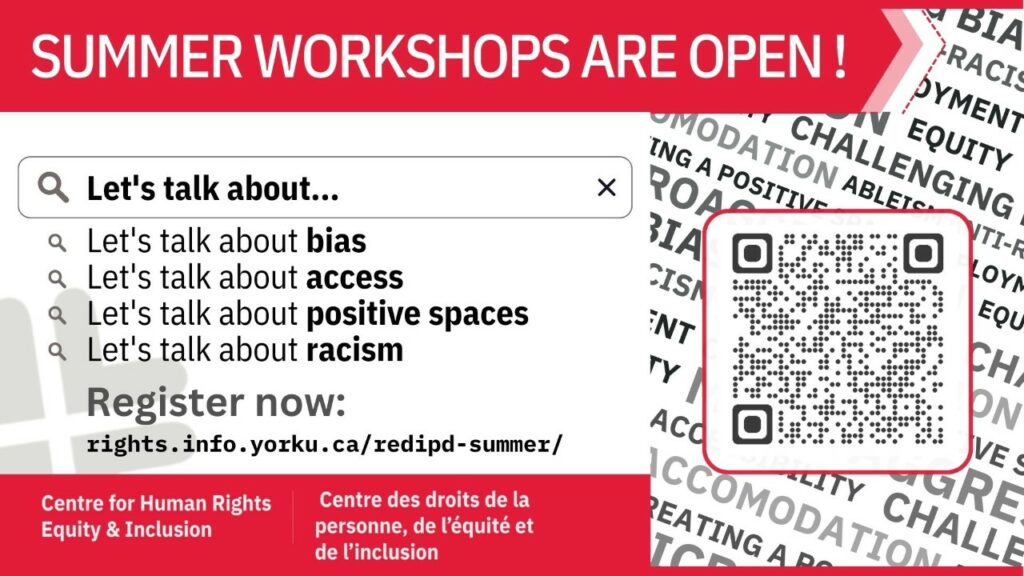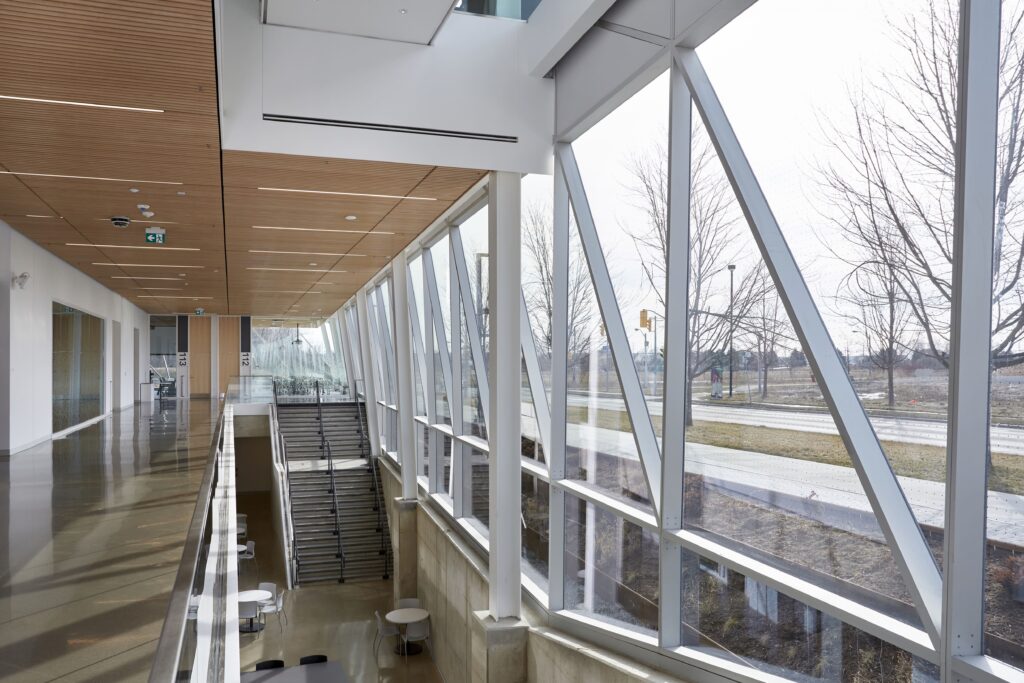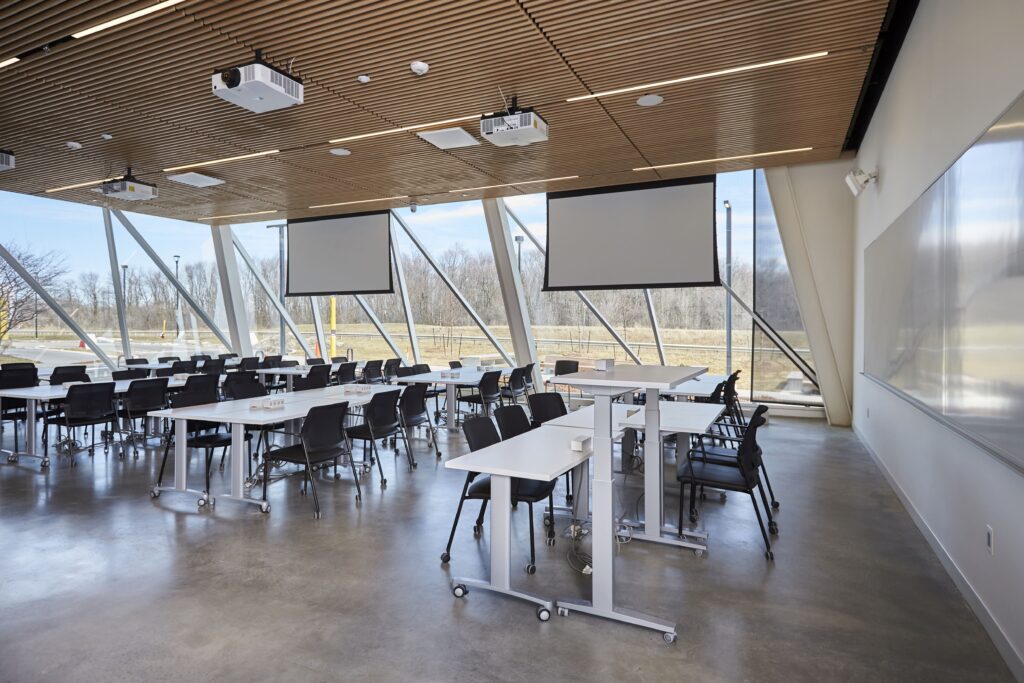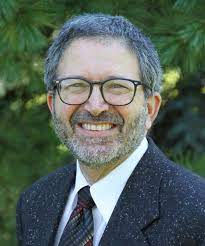Four budding researchers completed York University’s Commercialization Fellowship program – now in its second year – at the end of April.
The Commercialization Fellowship program is funded by the innovation arm of the Office of the Vice-President Research & Innovation at York. The program runs from January to April and provides graduate students and postdoctoral Fellows support and assistance to develop their academic research into a commercially viable product.
The Fellows receive $7,500 as stipend, with a quarter of the funds earmarked for research activities like prototype testing, proof of concept projects, or validation studies. They also participate in workshops and seminars that focus on various topics related to commercialization, including design thinking, intellectual property, licensing, and partnerships. Additionally, Fellows work at and receive advice on patent searching, industry outreach, and pitching.
“The fellowship provides a valuable opportunity to support and train the next generation of innovators and supports them on their entrepreneurial journey,” said Suraj Shah, associate director, commercialization and strategic partnerships.
Aspire spoke with the four Fellows about the fellowship program and their products.
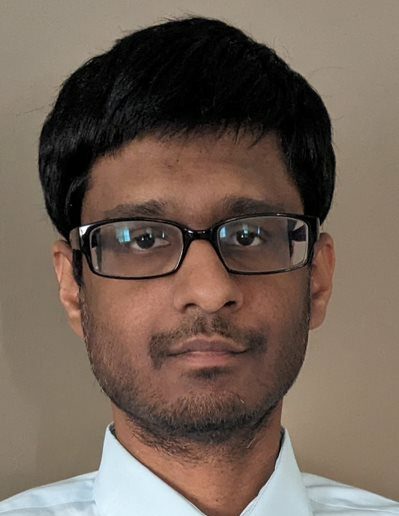
Kajanan Kanathipan, Electrical Engineering and Computer Science
Project title: Modular single-stage step-up photovoltaic (PV) converter with integrated power balancing feature
Kanathipan’s doctoral research focuses on the development of new extraction techniques for renewable energy, particularly solar power. Solar energy can be tricky to harness for power due to varying atmospheric conditions, like cloud cover.
Kanathipan is determined to find a way to circumvent this issue and build a device that not only streamlines the conversion process, but can maximize power extraction under all operating conditions.
Solar energy starts with sunlight, which is made up of photons. Photovoltaic (PV) panels convert the sunlight into electrical currents. This is then converted to electricity that supplies power for machines, homes and buildings to run on. It’s a two-step process involving different converters.
Kanathipan’s idea would reduce the power conversion to a single step, using the same converter. This converter would also be able to better balance and store power from the PV panels to not stress or drain one converter more than the others.
The invention would allow the entire conversion system to safely operate under different weather conditions. This would reduce equipment costs and produce a greater amount of energy for PV plants.
“We are looking to design and control photovoltaic conversion well enough that it provides an innovative solution in the solar technology industry,” says Kanathipan, who works out of the Advanced Power Electronics Laboratory for Sustainable Energy Research (PELSER) and is supervised by John Lam, associate professor at the Lassonde School of Engineering.
Kanathipan says the fellowship program has provided education and training not found in the lab, like the workshops on how to protect your intellectual property, build business partnerships, or how to determine a potential customer.
Right now, Kanathipan is working on a scaled down prototype, a key component of his dissertation.
Kanathipan is a PhD student in the Department of Electrical Engineering at the Lassonde School of Engineering.
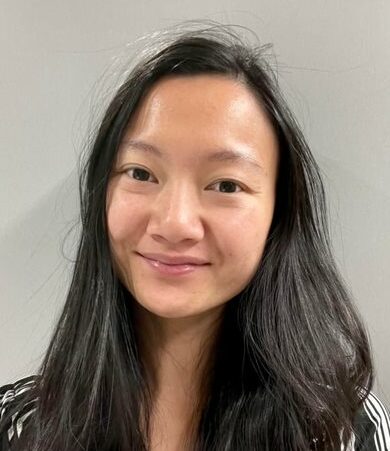
Stephanie Cheung, Faculty of Education
Project title: VoteBetter
Cheung created the VoteBetter app, a SaaS (software as a service) product, which aims to drive civic engagement in student politics. The application operates as a virtual election space for post-secondary student constituents, candidates and incumbents, and provides a central source for locating, contributing to and comparing campaign priorities. Users can view candidates’ profiles, submit questions, and view, rank and comment on crowd-sourced campus issues. Once the election is over, the app tracks the campaign promises of elected representatives and serves as a community forum.
Under the supervision of Natalia Balyasnikova, assistant professor in the Faculty of Education, Cheung’s master’s research examines contemporary trends in political participation on diverse campuses in the Greater Toronto Area and explores how undergraduate student election voter engagement and turnout might be improved. The idea for the app was inspired by her research and Cheung’s own experience in student politics, in addition to a former role as a public servant with the provincial government.
“VoteBetter can be used as a tool for students to deepen dialogue and focus more on the substantive issues their communities face than surface-level politics,” Cheung says. “Student groups can wield hefty budgets and their constituents deserve well-informed leaders who understand pertinent issues and are equipped to pursue sustainable change.”
Cheung says the fellowship program has offered structure and guidance as she works through her research and development phase. She says she is interested in the commercialization of her master’s research not for profit, but to extend the impact of her academic work.
“I am often asking myself how research can live off the page,” she says. “And I’m interested in my work facilitating opportunities for co-constructing knowledge and bridging theory to practice.”
Currently, Cheung’s VoteBetter app is being validated with end users.
Cheung is a part-time master’s student in the Faculty of Education and full-time staff at York where she works as manager, student success and stakeholder engagement at Calumet and Stong Colleges in the Faculty of Health.
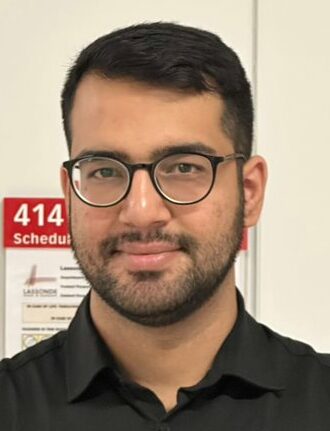
Mehran Sepah Mansoor, Mechanical Engineering
Project title: A method of fabricating one-dimensional photonic crystal optical filters
Mansoor works out of York University’s Advanced Materials for Sustainable Energy Technologies Laboratory. His research at the AM-SET Lab has led to him inventing a novel fabrication method for a photonic crystal optical filter, which can transmit sunlight over a broad range of wavelengths.
Mansoor, under the supervision of AM-SET Lab’s founder Paul G. O’Brian at the Lassonde School of Engineering, believes the invention could have several applications, but it could be particularly useful to improve thermal energy storage systems, particularly those that store solar thermal energy.
Thermal energy storage involves preventing losses via heat conduction, convection, and radiation. Mansoor’s photonic crystal filter more effectively controls solar radiation and thermal losses simultaneously and can transmit sunlight to be absorbed and converted to heat in a thermal storage medium.
The filter can also reflect radiative heat from the medium, which has longer wavelengths than sunlight, minimizing heat losses. The stored energy can then act as a power source later when sunlight is no longer available.
“The innovation is the way the materials in the photonic crystal filters have been fabricated and the treatment applied to them to achieve the optical properties needed to refract or bend light in a desired manner, as well as the way we have been able to stack all of the materials together,” said Mansoor. “Our method eliminates unwanted energy absorption in the photonic crystal while improving the energy transmission of the filter.”
Mansoor cites the program’s design thinking workshop as a highlight of his time as a Fellow. He says the fellowship also provided him a greater understanding of how to patent technology. This invention marks his first patent.
So far, Mansoor has completed simulations of the invention and has some preliminary results. He is in the early stages of creating a prototype.
Mansoor is a second-year master’s student in the Department of Mechanical Engineering at the Lassonde School of Engineering.
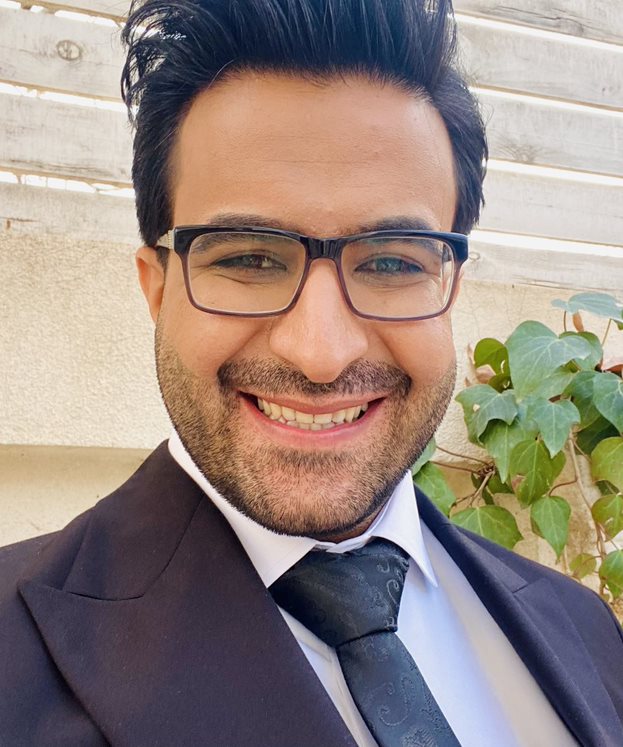
Abbas Panahi, Electrical Engineering and Computer Science
Project title: A novel portable platform based on field-effect transistor integrated with microfluidics for biosensing applications
Panahi’s academic work studying biosensors – a device to detect and target molecules – grew stronger after a PhD internship at Mitacs. Now in his fourth year as a PhD student and under the supervision of Professor Ebrahim Ghafar-Zadeh at the Lassonde School of Engineering, Panahi has invented a new biosensing platform that can detect disease.
The platform uses sensor technology that can be used on a portable device, like a smartphone, to analyze the specific concentration of RNA or any biomarker in a saliva sample.
“This technology has huge potential for medical application,” Panahi says. “The device could be used in hospitals for non-expert users to run clinical tests and help detect viruses quickly and easily.”
The portable sensor was developed entirely at York University’s Biologically Inspired Sensors and Actuators (BioSA) Laboratory – from the testing and modelling, to all the engineering – by a team of students and research associates under the direction, guidance and conceptualization of Ghafar-Zadeh. The development process involved a variety of tasks, including in-house testing, modelling and engineering design.
For Panahi, the fellowship program gave him a complete education for what it takes to start a science-based venture. He says the fellowship allowed him to fully consider every aspect of the commercialization process and develop a strong business model. He also says the program’s teachings on how to match the technology with market needs was invaluable.
Currently, Panahi is working on technology market matching, and readying the device to undergo clinical tests in the next year.
Panahi is a fourth-year PhD student in the Department of Electrical Engineering at the Lassonde School of Engineering.




